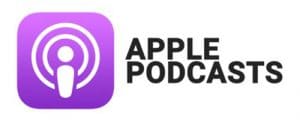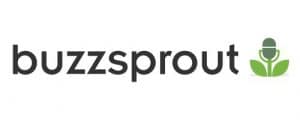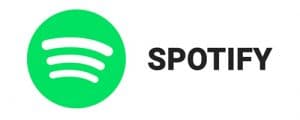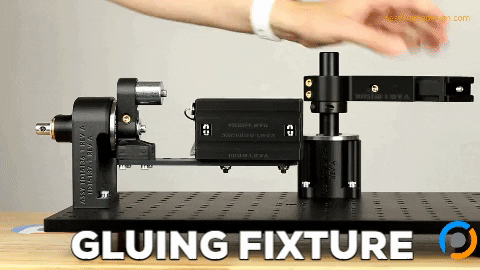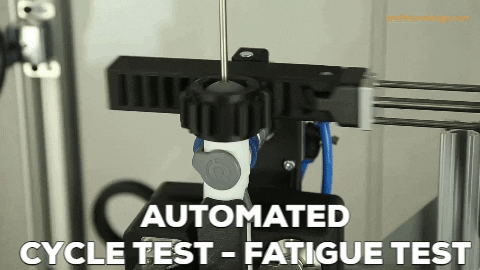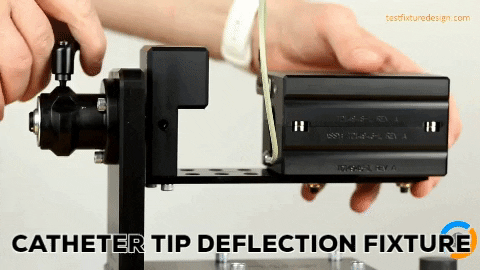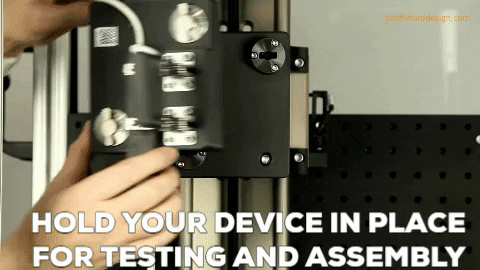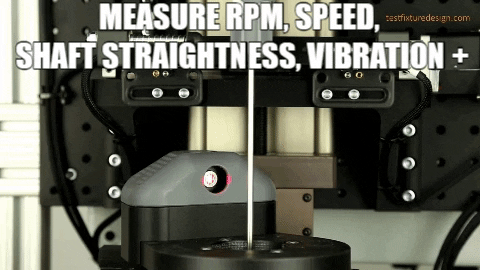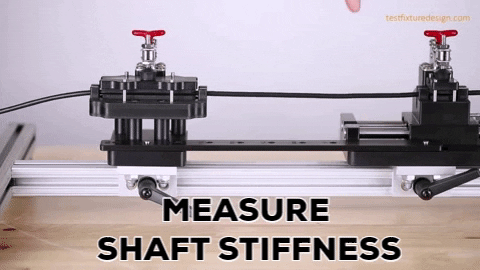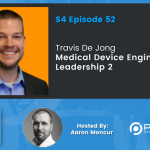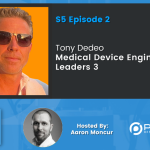S5E1 Dora Boussias | Data Architecture, Situational Awareness, & Growth
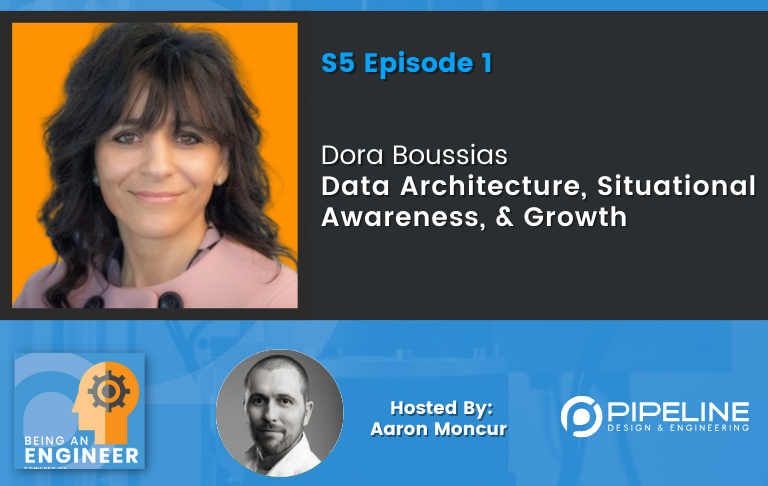
S5E1 Dora Boussias | Data Architecture, Situational Awareness, & Growth
Aaron Moncur interviews Dora Boussias about her career journey and leadership approach, with a focus on how she leads with empathy, transparency, and inclusiveness.
Main Topics:
- Data architecture roles and responsibilities
- Career progression and leadership skills
- Effective communication for engineers
- Overcoming imposter syndrome
- People management challenges
- Staying competitive through continuous learning.
About the guest: Dora Boussias, is a business data and technology leader with deep domain expertise in data, analytics, enterprise architecture, and digital transformation. She has been known throughout her career as a strategic thought leader with exceptional people skills, and this will be the primary focus of our conversation today as we learn how Dora leads with empathy, transparency, and inclusiveness.
Link:
Dora Boussias – LinkedIn
EXPAND TO VIEW EPISODE TRANSCRIPTION
SUMMARY KEYWORDS
data, understand, work, people, means, business, person, engineer, years, solutions, product, communicate, organization, career, talking, customer, technology, architect, speak, technical
SPEAKERS
Aaron Moncur, Dora Boussias
Aaron Moncur 00:01
Where do engineers and designers at companies like BMW, NASA, and Bosch get custom manufactured parts fast xometry with xometry Anyone with a 3d model can get pricing and order parts thanks to xometry Instant quoting engine, access dozens of manufacturing processes like CNC machining, sheet cutting and fabrication, 3d printing, injection molding, and more along with hundreds of materials, all in a matter of seconds, check out xometry today at xometry.com. That’s xometry.com, xometry where big ideas are built.
Dora Boussias 00:43
And the secret to success is that we are consistently clear about what we’re trying to do.
Aaron Moncur 01:04
Hello, and welcome to another exciting episode of The being an engineer Podcast. Today we have the privilege of speaking with Dora Boussias who’s a business data and technology leader with deep domain expertise in data analytics, Enterprise Architecture and digital transformation. Dora has been known throughout her career as a strategic thought leader with exceptional people skills. And this will be the primary focus of our conversation today, as we learn how door leads with empathy, transparency, and inclusiveness. Dora, thank you so much for being with us on the show today.
Dora Boussias 01:38
Oh, it’s my pleasure, Aaron. Thank you for having me.
Aaron Moncur 01:41
Well, can you start by telling us a little bit this is primarily our audiences, engineers, and I’m an engineer myself, I don’t fully understand what a data architect does. I mean, I think I have some general kind of nebulous idea. But can you share a little bit about what what is a Data Architect? What does a Data Architect do?
Dora Boussias 02:01
You know, I don’t think actually, I was having this conversation not long ago, with a couple of colleagues of mine. An argument saying the rules are one stereo definition for what a data architect does, or how we think about it, I was speaking with a colleague, for example, that was saying, hey, that in the modern cloud data set for analytics, somebody starts at the data engineer and then progresses to be a Data Architect, in my mind, Data Architect is a little bit different. And when I say Data Architect, yes, we can talk about data architects, the execution, and the report on the execution part of things. And maybe, you know, they are very close to means the mouse of an application on how perhaps to do data modeling or data architecture on a particular application. That being said, when I think of a data architect, I tend to take a step back, think of it as a data and information architect for the at the end to end enterprise mindset. So when I imagine for example, underpriced and information architecture, while we do is a very technical functional law, so it’s really Yes, understanding the data, but understanding the data, not in terms of the physical instantiations of it, or how I can do modeling it physical, you know, in this technology of that technology. But it’s more about from a data information architecture, understanding the data within business context, into the functional usage of it, and what it means as it falls to the processes. And we’re rolling out things like when we’re like end to end processes, not just the inputs and outputs of one system, or even two systems as a solution for a particular, say, initiative that has zero defined or finite scope. But if I look at costume, for example, if I look at customer sales, right, the antrum business process, what is the data in there? How can I streamline and simplify my intuitive process? Me getting the right data from the right sources, a lot of it has to do with Master Data Management. I mean, there’s a lot of focus and data information architecture on master data and data governance, to really understand the dependencies in the business needs so that we can model from the lab from a logical perspective. You know, those dependencies or new relationships in the data. And those models can translate again, it could be ontology knowledge models, it could be in relational models, dimensional models, right? So the yes, those the more physical and more technical side of things. But for me, an enterprise Antoine data from a shark attack is more really about understanding the business needs, and understanding the danger to English, the dependencies within business context, and then architecting to get the most value out of that data. And
Aaron Moncur 04:52
just really quickly, what are one or two examples of the kinds of datasets that you work with commonly or which Talk about like financial data or manufacturing data, or all of the above something else entirely. And of the above,
Dora Boussias 05:08
so I’ve actually been in it for 29 years and usually rounded up to 30 years. And so on my career, I have worked for a large retailer early on, I spend a lot of time in financial services more than nine years. Over seven years in medical technology, yes, I’ve been exposed to insurance, education. So throughout my career as a data information architect, yes, it could be financial data could be customer data, it could be any manufacturing data, it could be about material, it could be about suppliers, you know, where all sorts of data. And it could also apply to internal data, or even third party external data that can call me in, for example, on info on some of the decisions and the data analytics, and so forth, or or MIT streaming a transactional process, right? Because that’s the other thing too, a lot of times when we talk about data, especially later, we talk a lot about analytics. But then we have the whole data side of things, the data manager side of things, but also calling manage that within transactional processes, that in the end, feed and form drive Analytics as well. So all types of
Aaron Moncur 06:18
very description. Thank you for going through that. So you are a senior director and the data architecture space, which is a pretty high level position. And this series that we’re doing right now is about leadership, especially within engineering or manufacturing companies. Tell us a little bit about how did you get there? And maybe if you could focus your comments on what are one or two of the most influential factors that allowed you to climb to this position so that engineers thinking about this can can learn from some of the, the, from the journey that you’ve taken?
Dora Boussias 06:57
Yeah, thank you for this question. And I love this question. So let me telling you about that, actually, about my background, and how and how I got to this. Having been in it for 29, almost 30 years really played every mold, you can think of pretty much in STL said data has always been there. I’ve also done enterprise architecture, software development, data has always been there. But for me to go on to a senior director level in my organization run out, it’s about 20,000,050,000 people, it’s a large organization, you know, what makes a difference, it’s being able to one deliver outcomes, deliver solutions, even better when we deliver outcomes, right? And being able to work well with people and being able to communicate the value of what we’re doing. And now in my background, I got a technical background, because like I said, I’ve been at practitioner, and everything that I had to manage right now I’ve I’ve done it, I’ve been a practitioner. But I’ve always thought of anything that I do as data or data engineering, data development in all you different terms throughout the years, right? Everything I do I do it for business value, how am I helping my business? So have they always looked at my wall, no matter really where it was, in my career after the first seven or eight years, especially? It was always about how can I help my business go forward as a business to help their business? In other words, how do we become more agile cut down costs? How do we mitigate risk? How do I help better manage data will provide more resilient solutions that are going to cost us less overall, but also, you know, open up new opportunities to vote with our customers, while our customers for example, which means happier customers happier business, right? So other than you side. So for me, that was pay a library like to say 90 A leg in what business because everything I do on the technical side, I have to understand the functional side of things, and how it helps my business as a, what has really differentiating my career see can help me get to where I am in my career, you have the ability to relate with people and understand what their point pain points are, what’s in it for them, and then to leave road rather than collaboratively. Pull on my technical and engineering and data skills to deliver resilient solutions that really tie directly to customer value or streamline operations or you know, some sort of literally adding business value meaning I am addressing a pain point. I’m making a better data I’m working collaboratively to open up new opportunities for for the organization, right. So it’s not about the technology It’s not about the data. It’s about how I held my business, and how I communicate about it. And there’s more I can say here, but let me pause, to hear your thoughts and you
Aaron Moncur 10:11
say, things that I really love there, I’d like to discuss just a couple of them in more detail, one of the things you said was not just being able to do the work, but being able to talk about the work in a way that helps others understand the value that it’s creating, which is effectively marketing. And I think that’s a skill that very few engineers have very few, maybe it just professionals generally have, right, you might be the best practitioner out there. But if, if you don’t know how to, and in some cases, organically, the results are going to speak for themselves. But if you can develop a few skills around marketing to better communicate the value that you’re bringing, I think that’s really, really important. Some might say it’s egotistical, but I think it’s just good business, right for the individual. And then the other thing that you mentioned, which I would love for you to elaborate on just a little bit is you talked about the difference between delivering solutions versus outcomes. Can you talk about the difference between those please?
Dora Boussias 11:14
Yes, before we go to solutions, where versus outcomes, I want to comment a little bit on your comment about marketing and sales. And that is true. And yes, like people my think of this versus egotistical but I’m just telling you a little story. Many, many years ago, somebody said this to me, and that stuck with me. And was, yeah, I was talking to this person. And she was describing the great work, somebody else was doing the team. But that person was doing awesome work really good forward thinking nobody knew about it. So let’s see Santa Ana Stan was means it is not enough to do great work. Because if nobody smokes, that you’re doing this great work. Not only is this not helping you in terms of your career and navigating your career, it’s not helping the rest of the organization just say, hey, here’s how while it didn’t value. Hear about it, maybe there was an opportunity similar, were something that we can expand in this other functional area. Women, this can bring value to you as well, which is one I don’t think about this as artistical. Because when you actually say and not only in terms of how it’s adding value, again, this is now this is not about being arrogant or egotistical sales and marketing. It’s really I think of it well in terms of communicating communication and less about sales and marketing, meaning, how do I articulate this work? Again, it’s not enough to do great work, if people don’t know about it, then there’s a very small percentage of value we get out of that work, the value we will explore winning and in a in a constructive way we can articulate and communicate and say this process was breaking, you know, we will now give you an example. We missed shipping product out. But you know, we want with your xyz and we were able to alleviate the pain. And next time we were being proactive, it’s not going to happen. That x y z tax MDD could be for example, practical and looking at doing decorative quality of the day. And you know, was it the cost for example, not shipping our product? Maybe it was because the tailor was not good. Maybe it was missing? Maybe this continuously? The position was confusing, right? Whatever it is, we did something to now now in Texas right now, but maybe talk to the only attorney that that’s adding value, right. So how do we say not in an arrogant way, Nanette in your face way, but hey, great, we saved Abramovich time we only proactively, were able to meet our customers needs, whatever the value is, rather than the leaving the example by doing X, Y, Z. Somebody else might hear they say, oh, you know, we had a similar problem. Can you hear me? Yeah, really? You can look at Medina verse way, really, you know this person? And you guys thought about vice versa, voiceovers? And did you figure out? Can you put me in contact? So what is this job? Number one, it highlights, again, the value of assistance, and whether they’ll bring to the table without you say, Look at me, I’ve done all this work. It’s again more about how do we help the organization, the other person or the other team and to that help spread the wealth? And say, how do we you help and I’m going to say one other thing here, then we’ll go back to the assumptions versus outcomes. Being able to articulate and communicate what helps what are what has helped me with that throughout my career and is really knowing who I’m talking to. So if I want to communicate about the great work my team is doing I’m I’m going to talk about it to my finance person in relation to a finance situation a pain point or opportunity that finance will understand right, based on what they’re doing their day to day process or whatever the person I’m talking to. But if I’m talking with someone that’s on a manufacturing plant, and they’re doing today fraught process, it’s around design niches, different situations, I’m going to use an example to showcase the value that they can understand, I’m not going to talk about finance. And if I talk to sales, you know, Field Sales people out in the field, I’m going to bring up an example that resonates well. Now, I’m not going to talk about, you know, what legal is trying to do, for example. So that is something that does help is a having, again, a criminal back to your original question, right? Because adding value is not a theoretical thing. It’s not an abstract thing. It’s the real tangible thing, connecting it to rally, but also make sure situational awareness, mobility, talking to and articulate or communicate, as you say, in a way that that audience understands what it is that you’re talking about. Which means this, it means that for me to be able to communicate better, the onus then is on me, to understand my audience. So if I’m talking to an operations person, or marketing person, or a sales or finance person, before I go into that situation, I will understand more about their function, especially if I’m trying to, quote unquote, sell something, a lot of what I’m doing, it’s forward thinking, for example, and involves a lot of transformation driving changes organization. So again, that is a technique and a tool that I use, which puts the onus on me, before I talk to my procurement person, hey, what does it mean to do procurement? What what are the challenges that this person may have this stakeholder this function comes across, when they’re looking to negotiate with suppliers, for example, right? So again, educate myself that arms knee with better tools and context for me to better communicate the value of the work that we’re doing. And that not only helps my team and my functional managers as a functional leader in the data space, but it also just makes me more valuable as well, because then people understand well, coming from what I’m saying, and you know, they can reach out and pull on that value. And I haven’t forgotten about you out of question. But I don’t want to make this this point here. Because I think it’s very important.
Aaron Moncur 17:35
Great, yeah, let’s move on to the solutions versus outcomes. Now,
Dora Boussias 17:41
the simplest way for me to think about that. So this is not about keeping busy. So it’s always about driving rather than worrying about what are those goals and objectives? And oh, by the way, the goal should not be I’m going to do data engineering, because I’m going to try out this new data engineering or whatever type of engineering, practice or technology, right? I’m not going to do dividend for the sake of data. I’m not gonna do engineering or architecture, with technology for the sake of that technology and so forth. What is my goal? does it relate back to is a customer vital? Isn’t it you know, business values, the patient values? And how does he relate back to company’s strategic objectives that we’re trying to go? Now once I know that, that’s actually going to help me to make sure that I’m delivering outcomes, not just keeping busy so so we should I can put a solution out there. But is it the right solution? We said we have about 20 right now. And even if failing is how do I make sure that I draw out with a with a perspective of how is this helping my business stakeholders, or, you know, my internal or external customers, patients and so forth? That actually I found inmates it’s a very solid difference versus Hey, I’m going to do this work today. Great. I’ve worked for eight hours 10 hours whatever it is, I’ve kept busy by half what was the impact on the social illusion versus out there for me is the value add. And for that to be valued Rogers basic work, I had to be very clear as to what is my target? Do we all understand that target now consistently, because that’s another key point that I say it has helped me my career and I think technical and engineering ask people and don’t always it doesn’t was resonate. Sometimes we’re getting on with Hey, let me prove this other engineer got this other technical this other data practice. Let me talk about mesh versus fabric in my data architecture world for example. Now when we talk about genuine AI versus machine learning when we talk about you know the CDB plan Often versus the data lake with the data lake house, such as technical jargon, you know, I. So it’s not about a technical jargon. And it’s not about being right or wrong just implementing those things. Unless, again, it’s the right things to implement. And this time, and we know about only when only one we know where we’re going. And we get everybody marched over laws towards common goals. As part of communication, I think one of misunderstandings, a number of the traps that we fall in is that we think if they say something that the other person understands the same, I mean, how many times right? Can you imagine yourself being in a meeting? I know I have. I’ve been there many times since Bill was alive. For me being in a meeting, talking by sayings, people stating things and walk away with things to do and walk away from the meeting. And then it’s like, wait, what? Exactly, I must appreciate what you saw me more than staring down the path coming back for the next middle of the next touchpoint and realizing, oh, wait a minute, I feel this is bubble we’re doing well. So this is what we’re doing. So communication, again, clarity on communication, and just really taking the time to ask the question and say, Hey, here’s how I understand it. Is this Hi, you understand? We’re making assumptions. We’re making assumptions. I mentioned that I gave me a very quick example. Many, many, many years ago, I was in a conversation talking to my business stakeholders. And when we’re doing $2 analytics, and he had to deal with as you know, being in a lot of the of the data and trying to look at where the product where the inventory was in the company, right? How much of that real raw as well as the time from $1 value back to the financials, as we’re already out statutory cost management because you have different costs. And we can sometimes are even shy to say, Well, what do you mean by that? Or anybody beat them? I say, I don’t want to ask what that means. Because people might think, Oh, I don’t know, my staff, or I’m coming across, I don’t know, as a non smart person. Silva might be shy. And what I’ve learned over my career, and this is something that I was doing earlier on is being shy to ask questions, and making the assumption that everybody else knows better than me, or that anybody else understands what this means. But I know very clear, turns out are the ones I asked the question and being curious about it. Not only are we not thinking about it the same way, when they fall apart sometimes and turns out of the examiner that was gave me that get Gagan summons of STURMS wishes normal pleasure wasn’t accompanying turns out then in the industry, it was just very local nomenclature that that he put together, and it becomes so much part of the lingo right, you seek oh, gosh, maybe that’s an interesting term out there. And I don’t know what it is, I’m gonna go Google it. And maybe they find it out dead body mind is something totally different. Not exactly what in this dynamic in this case, and both organizations, how it’s been understood here. Some would say as part of communication, again, make sure to gather clarity.
Aaron Moncur 23:06
I’ve had similar situations where I think to myself, Oh, I don’t have anything important to add here. Everyone already knows the things I’m thinking. And then I’ll start sharing them anyway. And they’ll realize, oh, they didn’t know that, or this point was not clear to everyone else. So sometimes it can be it almost feels a little uncomfortable, because you feel like maybe everyone else in the room is so much smarter than you are. But then you you start speaking and realize, oh, well, I mean, smart can mean a lot of different things. And I actually do have some really valuable insight that I can share with the with the team, which I think that that that’s a good lead into the next question. But before I get into that, I want to bring up really quickly, your point about solutions versus outcomes. I worked with an engineer in the past who was technically brilliant. I mean, this engineer was very, very skilled from a technical standpoint, he could do things that other engineers just couldn’t do. And how do I phrase this? What we learned in the end was that it was not a good fit working together, not because he wasn’t technically skilled enough, but because he was more focused on solutions rather than outcomes. And there were so many times when he would put together this just tactically amazing solution, which was really cool, right? Any engineer would look at it be like, Wow, that is so cool. That’s amazing that you were able to do this. But it was not necessary. It wasn’t something the customer had asked for it. In some cases, it was something customer had specifically said don’t work on this. So there is a very significant business value to understanding the difference there between solutions versus outcomes.
Dora Boussias 24:56
I think yes. Sorry. Go ahead.
Aaron Moncur 25:00
Going So we were talking about this, this. I’ll just call it impostor syndrome. This is something that I certainly have experienced in the past, right? You’re in the room and I shouldn’t be here. Everyone else is so much smarter than I am right? I don’t really have anything to, to contribute to the group. Have you ever experienced that, especially as you have grown and climbed, climbed the ranks as a leader into higher and higher leadership positions? Have you ever experienced that imposter syndrome? And how have you managed that throughout your career?
Dora Boussias 25:32
Absolutely. Many times. I don’t. I mean, if I didn’t experience it, that means that I don’t grow, I keep on doing these things, then I stretch and grow i. It’s actually incidentally, about two weeks ago, I went to a TEDx event. And so Carla, and one of the folks that was speaking on there, was talking about that. And he put Ross idea worth spreading apparently, a TEDx saying, hey, what if imposter syndrome is actually not a bad thing? Because so many of us by default ghetto, saying, one fear actually were means that I’m being uncomfortable, because I’m stretching and pushing myself into something new. And what’s so bad about that? We keep on growing stretch is something new, right? So it’s, it’s, it’s literally imposter syndrome, almost in a different light. And I’m not doing justice to the person’s idea. But yes, it’s probably even on ted.com. Yeah. And because we’re just a couple of weeks ago, but you know, then you can search for it later. But the simple answer is yes. And he goes, I’ll give you this example, I can visualize myself back in the 90s, being in a meeting room, almost like a boardroom around the table. And exactly what you said, Aaron, I, I was shy, I was giving back I had all these questions. And I made this assumption that everybody else knew better than me have come across as being done if I ask a question, and I wouldn’t ask the question. Turns out from all the conversation, you know, other people didn’t really understand it as much. I was overestimating other folks knowledge or abilities under estimating mind, because what is being smart being anyway, is simply for me being smart. It’s not that I have the biggest knowledge, right? In my mind, being smarter means I use what I house and I drive an outcome. You know, I figured out what were the right folks, I want them to reach out to I know how to communicate with them. I know I can quickly, you know, leverage other folks. Expertise, surround yourself with the right people bring expertise myself, we work together, we get good things done, right? That in my mind, it was an interpretation of being smart. Now that I know everything, especially this time and age where he can just Google everything or charge up to everything and you get some kind of an answer. Right. So what happened over the years there was to realize that I’m, I’m I’m really assuming that everybody else knows about this particular topic among more than me or allow better, as Sanyasi pushes more now realize that led to better conversations, and it led to better success for the projects. Because asking the question, opened up the dialog, and then you see that other people also have gaps in the knowledge or misunderstanding things differently. And in some cases, now that you have a gap, or then you don’t understand, but they you understanding differently. And the secret to success is that we are consistently clear about what we’re trying to do. Which means we need to understand the goals the same way. And well, who does why how to work together, where to go to the lack of clarity is, I think, you know, kind of critical to us not now be successful. Right? So right now, it’s over the years that got more and more comfortable. So right now, as a leader, I actually by design, sometimes ask one people might think it’s a dumb question, because I do that just to also show and in a subtle way, almost kind of like, quote, unquote, give permission to other people to open up and ask questions, because I know we get to better clarity, better conversations, better designs, better solutions, what we’re going to put on the diversity of thought, and expertise, and we’ll bring that to the table. And you know, we’ll work better together, as I like to say, which I believe it. So it’s almost as if me being in a leadership role asking that seemingly dumb question. I know what I’m doing. I’m opening it up for other people to also ask that question, when I get down is to better conversations.
Aaron Moncur 29:52
I love that I have a friend who does the same thing. He’s a leader in the space and he calls those McDonald’s questions, and I’ll explain what that means. He says, occasionally they’ll go out to lunch, you know, part as a team, you know, whatever the group is at the company. And someone will ask, well, where should we go? And nobody wants to speak up and say, Oh, we should go to this restaurant, or we should go to that restaurant. So he’ll, in his opinion, pick the the worst restaurant out there and say, We should go here. And so his go to is usually, oh, let’s go to McDonald’s. Well, no one wants to go to McDonald’s. But after that suggestion, any restaurant seems like a great choice. And that’s his way of opening things up McDonald’s questions. Well, let me take just a very short break here and share with the listeners that our company pipeline design and engineering develops new and innovative manufacturing processes for complex products, that implements them into manual fixtures or fully automated machines to dramatically reduce production costs and improve production yields for OEMs. And today, we’re speaking with Dora Boussias and learning a little bit about her leadership journey. And the the drives or the changes that she has brought to fruition at the companies for whom she has worked. Dora, what you had this really neat experience when you came to the United States many years ago, and and then that that kind of brought home the growth that you’ve been able to achieve over the years with with a recent ish experience. And I think you know what I’m talking about, can you can you share that experience with us?
Dora Boussias 31:36
Yes, thank you, Aaron. I appreciate the kind comments too, I know what you’re referring to. So last year, I was nudged to, to write an article for a magazine. And I did write it. And it was published in car review of the magazine. The article actually was about Dana was on your way to being data driven up for this stuff pitfalls. But what happened I did not know is that it didn’t just publish, apparently made the cover story of the ECM. Additional is a magazine. And one day, I got the actual print copy of the magazine in the mail. And as I was holding it, and it was a surprise, I didn’t actually know. So it was great to get the magazine. But as I was looking at this, I saw my words on the cover page, and then opening out it wasn’t a spread cover story. And interestingly, were split second. It took me by surprise. But as I saw my words on the on the cover page, it pretty much bring him back almost 34 years ago, in 1989. In February, this is when I came to the United States. And this particular instance, really brought tears to my eyes that totally blindsided because I could hardly speak English when I came to the United States. I mean, I came here to go to college. Yes, I had taken the lower exam and I had passed it was a grade of C when I say so I just learned that wasn’t the father of it. When I came here, however, my aim was not trade so I could hardly understand what anybody was telling me. I had started studying English one was about full teens out of books and listen to the British accent was a little bit different. My aim was in trying to just had a cassette tapes. And, and so going from that, and I call how harder was Lucy’s I mean, it took me I think the first three months I don’t think I ordered anything else hadn’t gone hello, goodbye. Thank you. You know I landed in JFK I went to Morro Bay, Connecticut and back then I was referring to it as Waterbury, Connecticut. This is how it was anonymous. This is how I was speaking so you can imagine how much harder time I had to get used to understand what people were telling me so sorry yes from that to announce that a few years later seeing my was printed in our cupboard page or just even running an article having the policy was it was a big moment for me and and then what I also thought and yes you saw that story because it’s shared about a story right and I have a little quick eight minute video on LinkedIn. What I saw that the moment is hey maybe this is the story somebody wants to hear because to get from there to hear how you happen was many tiny little steps and that was the message that I want to get out not about the fact that that hey, I would have nautical insulting I mean I did that just these are my LLCs if I can help anyone you know these resonate and somebody can be inspired or learn from those lashing lessons implementing successfully data strategy program, Jen Great. That’s what I wanted to do. lesson was a byproduct. I wasn’t expecting it, but did not have the fact is that to get from there, the 17 year old girl that could hardly understand anything to hear. It was really really putting him to work being resilient, you know, and taking many little steps. It’s falling down and getting out going in it again and realizing that it’s not one thing, jump. I do this right now, in my role for so many years, I’m driving enterprise level, you know, enterprise wide change. And I know what to expect pushback. And I know it’s not going to happen all the time, because especially larger than organizations is like a big ship, it takes a while to steer. So when I’m bringing something through, we’re thinking about data, information architecture, about all these things that we want to do versus just go and build something instead of wallets thoughtfully think about the central line and make sure that we’re not just building your solution, but a number of very resilient solution that will still be here. And as long as you’re using it strong next year, not trying to fix Why would you like to buy the first time, there’s a different way of thinking and doing that I’m speaking about. So that’s really driving change. And I know, it’s not gonna happen overnight. So it’s the same kind of mindset and the same kind of practicing it every day, one little red, one little step at a time, and without saw, and think about it, right. If at the end of the year, we usually take stock of what happened in the year right or a new year comes we’re getting into an older resolutions, right? We’re at the end of the year, we usually look back at the year, we’ll look back at the five years, right? And some times, Tom, you think otherwise. But for me, I look back, I’m like, Oh, wow, that’s been quite a progress. Or even the stories that were yours. My example. Like, that’s quite a difference. Well, it wasn’t on big job. It was doing the work, showing up every time and just taking tiny little steps that just keep on adding to each other.
Aaron Moncur 36:55
That’s terrific. Yeah, that’s such an inspirational story and just shows what consistent hard work could do. We have some tenants that we hang up at the wall, a pipeline, and one of them is persistence, beats brilliance. And brilliance is great as well. But I think persistence 99 times out of 100, it’s the persistent person that succeeds. And maybe one time out of 100, you really do need that truly brilliant person, but 99 times out of 100, as long as you’re, you know, some minimal level of smart, whatever smart means or tons of definition that but as long as you have that minimum viable sport, it’s the persistent person that wins in the end, that really succeeds.
Dora Boussias 37:37
I couldn’t agree more. And, and I will add also knowing how to work with other folks, because that is important. Because all as I like to say sometimes no one arises on Long Island, not as a person not as a function. So I’m always talking about how do we partner, collaborate, build that trust set up for that credibility with our stakeholders, internal and external? That’s what’s really also healthy. Showing up being consistent, and, and knowing how to work with other folks as well.
Aaron Moncur 38:12
Absolutely. Well, tell us a little bit about some of the some of the biggest challenges that you encounter as a leader.
Dora Boussias 38:22
Ah, well, for me as a leader, there’s a couple of different dimensions to it, right. First of all, from the business function side of things, I want to make sure that I do everything I can to make the right AIPAC to work on the right things to work as best as I can wait folks, 20 fours to again, make sure that we’re prioritizing the right things at that point in time for the organization. Great. Our last two strategic objectives. And I helped shape our goals, you know, what’s my team and what we’re doing and how is this organization so from that aspect of, you know, the Lord your role, that’s something that I’m always very cognizant about. Rather aspect of it, which is equally it’s not brokering some you know, it’s a little gray, right? Sometimes this takes over sometimes the other one, it’s a little more fun with mine, but it is, I would say equaling the longtime Ron Ron in one for me is the people management aspect of it. And it’s not so much about the people and the people management but also just talent. I’m making sure that I attract I bring in to the team, the right talent that will integrate all the rest of the team and the organization that I do everything I can to incriminate opportunities for my team to help them navigate their career, to be a coach to be a mentor to just make sure that that depending on can advocate for them, I can sponsor them I can help them heal This whole mentality turnabout, I’m talking about not just as a leader, but just driving, change obeying. And I talk a lot about empathetic leadership, right? It’s all about what’s what can I do for you? How can I help him be that being somebody that is part of my team and reports up to me? So how can I help you, you know, this person to make sure that they’re working on the right things that they’re getting, you know, that they’re doing good work, that feeling accomplished or being acknowledged, that I helped them again, progress in their career, because that’s what will make me really happy is making sure that hey, I had a positive impact in this person’s life. And I helped them from a career perspective to to do better. So what can I do for you, you know, as a as a people, manager, and again, as a function, what can I how can I help you, with your different stakeholders, different functions of the organization so far? So Hmm, it’s about the other side, not about me. And that’s really, I guess back to your original question, now that I’m thinking about the dairy that it gives. It’s one of those reasons that has definitely contributed to me being where I am right now. Right? Almost thinking about how can I help bring value? How can I help him Whoever the human is, right? The person the function, like I said, Now, this was even the reason why I’m even here on this podcast, because I started talking on podcast very organically, somebody reached out and Bala two more, but I’m doing that for no reason other than, hey, if I can share some of my lessons to help out. That’s why I’m doing it.
Aaron Moncur 41:41
Yeah, absolutely. And thank you for for doing this. I heard a quote once a long time ago that really resonated with me and is aligned very much with what you just said, the quote was, the best way to get what you want in life is to help others get what they want. And I’ve found that to be very, very true. We
Dora Boussias 41:58
know that is so true. And that is so good. Because I don’t want to give the wrong impression out to what happens when I share because I say, hey, if anybody can count on life on this gray area, they end up learning more. And I’m not just saying this, because just as talking IRENA I have learned from you, I’m learning from every person that come across. If I go to a conference, for example, I make it a point of capitalize on my time there to connect with people not to collab with a whole lot of people. But the people that I connect to about quality, not quantity is making sure again, that I’d say true and authentic connection. And I listen, and my learn from the other person, because when I’m sharing, and especially if I’m sharing in terms of how can I help you what ends up happening, the other side starts sharing then what they know their experiences. And this is diversity of experience or thoughts that I have not heard before, because it comes from somebody else. So again, at the end, he helps my light bulbs go off as well. And just keep on growing and running as a as a human being and as a leader.
Aaron Moncur 43:05
Yeah, absolutely. What you’ve been in the the medical device space for a number of years now, what are some challenges that you see facing medical device companies these days? You
Dora Boussias 43:16
know, I don’t know if it’s specific to medical device, to be honest. And I’ve like I said, I’ve been exposed to many different industries, and I’m very active talking to colleagues across different industries. So I don’t remember this, what I’ve what I’m seeing is very specific to medical device, I think all of us need to get really comfortable, in really effective efficient even with managing change. It’s the only customer really thinks constantly changing. Maybe it’s COVID that hates us out of the blue. Maybe it’s the fact that I don’t know, there is unrest in the world, and they enact separations, right? And people, maybe it’s the fact that technology is advancing so quickly. I mean, we all know everybody’s talking about charge up to what is doing right now. Right? Or all of a sudden we’re talking more than ever before about a governance you know that is impacting not only medical device companies by any organization out there. So for me the biggest challenge is that staying relevant, staying competitive, making sure that as the competition because of the change becomes warmer fears. That means that we then need to be very good at housekeeping so to speak, that we’re being efficient that we can scare the word John while we’re doing that we’re adding valuable as we’re doing all of the actually not going to rush being able to be to scale the new John means that we are adding value to our customers and our and our patients right? Because that means if you get my product I’ll damage weaker and in my case medical technology right now healthcare, it could save somebody’s lives right it will make their life a lot easier depending on on the device. Whenever we’re talking about, and then how do we integrate all these advancements to, to, you know, do bigger and better things. You know, like, for example, some of our products are selling using AI, that actually creating new, new products to help our patients. And I’ll give you an example one of our products, for example, right now look for striker was using AI and looking at how much that is in Spanish just by holding this function from domino products, holding a sponge, which is a medical sponge that could have bottle override, as the surgeon saying, using it in front of an image, you know, image recognition, and that could come back and tell me how much well, which could be an indication of is this person bleeding too much during the separation? That could be life saving? That’s just an idea, right? One of the hotter so how do we also use these new capabilities and technology to double the ceilings, and floor wall and where there are other champions that have seen not only again, in my industry, but in all industries? And I truly believe this, it’s realizing that always everything goes back to people. So although the technology and everything, how do we now knows, sign of the fact that how we work with each other. And back to having those clear goals that clarity and communication and targets. Nothing about the technology is that silver bullet that were sold everything ill was back to ask people how we would work together? Because even with all the latest technology that you’re learning Lopez they say, right, it’s necessary, and how we understand collaborate, partner and make things happen with each other. I think we tend to forget that, generally speaking, across the industries. So to me, that’s a challenge to keep that front of mind.
Aaron Moncur 46:55
Absolutely. Well said, I think we’ll just do one more question. And then we’ll wrap things up here. A lot of the people who are listening to this podcast are doing so because they have a growth mindset. They want to progress they want to grow in their careers. What are some things that you think maybe are specific to technical individuals such as engineers, and as far as their growth what are some practices or skills or behaviors that you think engineers and technical professionals need to develop to really differentiate themselves and grow in their careers?
Dora Boussias 47:34
Thanks for the questionnaire, and I think it relates to some of the conversation that we had. And say, I only say knowing your craft, your engineer, whatever type of you know, technical such amount of expertise, know your craft, that’s like table stakes. But from there on, never stopped learning and learning got my sense, it’s great. Learning includes running again, how to communicate, how to showcase that, hey, this is bringing value. Being curious asking questions. To me, those are the kinds of differentiators. That’s something that I don’t need to learn to slip. By the way. Everybody that knows me knows that I’m not just passionate about the work that I do. But I’m always very curious and always learning those things that helped me, I think they help differentiate, so know your craft. But also don’t forget, it’s not just about the technical dumping chapter, don’t speak jargon words, speak to your stakeholders, speak in simple English terms, relating it to how it’s going to help your stakeholder, then keep on learning. Because I’m going to say this on our saying that a friend of mine said Not long ago, and it stuck with me. I talk about a lot about change. And I realize sometimes people maybe not the audience here with a growth mindset, but sometimes we forget or other people don’t like the change, right? Maybe there’s a little pushback. And what I think is that that’s really the only constant right? It’s gonna happen. It’s like a way of life, you can’t skip over change, you just, we just, we just can’t, it’s gonna help it and find what’s mine a while back said, Well, you know, standing still, it’s really going backwards. Standing Still, it’s really going backwards because everything else around us keeps moving forward. So you know what, I’m standing still, maybe I want to keep on doing things the way that I was always doing. Maybe it’s too much work for me to realize when I speak to my operations process versus my salesperson, you know, what are the different pain points maybe it’s just a lot easier for me to just go and speak at it for money and you know, technical such metrics, expertise, and just throw a whole bunch of technical jargon, but that’s not gonna help us much as these other things that we talked about. So we can push back we can stay where they are, but everybody else around us is changing. So don’t study still be curious. As asked questions, don’t forget about how to more effectively communicate. And of course, always nail your stuff and deliver.
Aaron Moncur 50:08
I love that some of the great catch phrases they’re standing still is moving backwards and how there’s another one that you use, oh, the only constant is change. Terrific. It made me think of, well, the statement about standing still is moving backwards. Just another way to talk about that. If you’re, if you’re training a muscle, if you’re at the gym, right, you’re lifting weights, and you’re doing, let’s say, 10 reps for four sets of whatever benchpress or something, if you do the same thing, every time, the 10 reps of the benchpress, four sets, and actually gets harder to do over time. It’s not until you start pushing yourself to do more than you did last time, that you start building the muscle. And I think that’s a great analogy for a lot of things in life.
Dora Boussias 50:58
I think that’s a great analogy as well. Yes. Silly. I totally hear us talking. I’m running from you. And this is why it’s great goldfish. If they got some bass back, so that’s,
Aaron Moncur 51:11
I love it. Well, Dora, thank you so much for being on the podcast today. What a delightful conversation has been I’ve loved hearing your stories and hearing the insights that you have shared with us all. Is there anything else that you’d like to say before we end the show, any anything else that we haven’t touched on that you think needs to get out there?
Dora Boussias 51:32
To sell? I’m really grateful to be here. I really appreciate the time. I appreciate the conversation. And if anyone listening has any questions wants to reach out, please reach out to me on LinkedIn, I’m always approachable. And we can, you know, continue the conversation there.
Aaron Moncur 51:48
Wonderful. Thank you so much, Dora.
Dora Boussias 51:50
Thank you. Thank you for having me.
Aaron Moncur 51:55
I’m Aaron Moncur, founder of pipeline design and engineering. If you liked what you heard today, please share the episode. To learn how your team can leverage our team’s expertise developing turnkey equipment, custom fixtures and automated machines and with product design, visit us at Team pipeline.us. Thanks for listening.
About Being An Engineer
The Being An Engineer podcast is a repository for industry knowledge and a tool through which engineers learn about and connect with relevant companies, technologies, people resources, and opportunities. We feature successful mechanical engineers and interview engineers who are passionate about their work and who made a great impact on the engineering community.
The Being An Engineer podcast is brought to you by Pipeline Design & Engineering. Pipeline partners with medical & other device engineering teams who need turnkey equipment such as cycle test machines, custom test fixtures, automation equipment, assembly jigs, inspection stations and more. You can find us on the web at www.teampipeline.us

